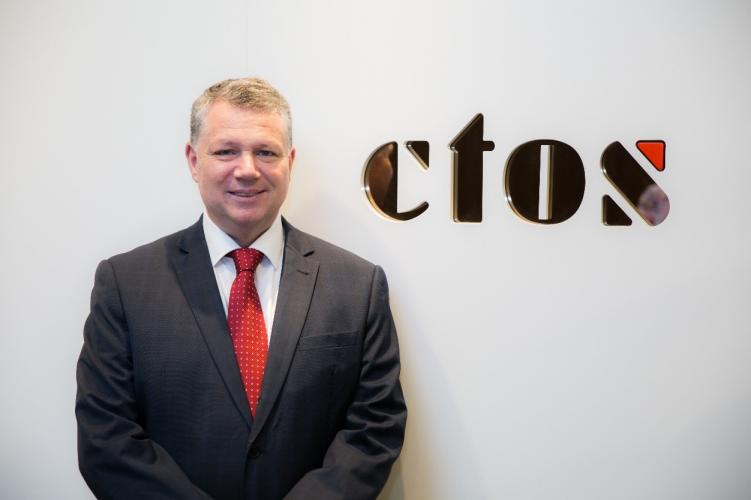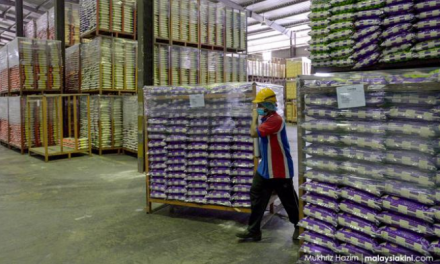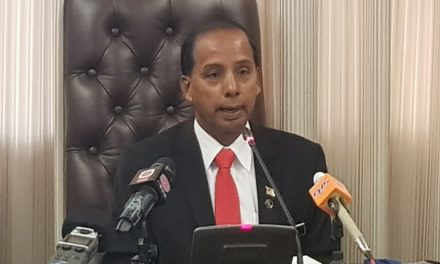KUALA LUMPUR | Credit rating is a concept that is still viewed negatively although it can improve one’s financial standing. CTOS Holdings Sdn Bhd group chief executive officer Dennis Martin shares financial advice with the New Straits Times and explains why the credit rating system is important.
Question: Why is credit rating perceived negatively?
Answer: Many people think we can change existing regulations and that we blacklist people. The truth is, at CTOS, we just collect information from various sources and pass it on with your consent. We do not manage or change your data, let alone make a decision.
Banks decline your loan application not because of something we have done, but based on many things you have done — how you behaved in the past, whether you always paid your bills or loans on time.
The regulation is clear and we have to comply with it too. If there is something wrong in your credit report, it can be corrected immediately.
A negative perception of credit rating also goes back a long way to when credit rating was politicised. Hence, we are trying to change people’s perception and we have to spend a lot of time and money to try to educate people to get information on their credit standing.
If their credit rating is not good, we will help them so that their scores can be improved. Many people will only deal with their credit report when something goes wrong with their credit facilities application.
Q: What is CTOS?
A: Established in 1990, CTOS is Malaysia’s leading Credit Reporting Agency under the ambit of the Credit Reporting Agencies Act 2010. We have access to a range of information from several sources, including the Central Credit Reference Information System (CCRIS) under Bank Negara Malaysia (BNM).
At CTOS, we facilitate credit extensions by empowering individuals and businesses to get access to crucial information at greater ease and speed.
Q: What is the difference between CCRIS and CTOS?
A: I get that question almost every day. CCRIS is a centralised system developed by BNM to gather and store all data on debts by individuals or companies with banks or other financial institutions and used as a reference by all financial institutions or credit providers in Malaysia.
At CTOS, other than information from CCRIS, we also get information from sources such as the National Registration Department, Registry of Societies, the publication of legal proceedings and notices in newspapers and government gazettes, Companies Commission of Malaysia, Malaysia Insolvency Department and subscribers’ contributions of litigation record.
We also have telcos (telecommunication companies), insurance companies and small- and medium-sized enterprises (SMEs) as our customers, and they provide us with data.
Hence, the CTOS’ report is more comprehensive and many banks also use it as we have a complete picture of one’s credit standing. We have more than 900,000 consumers who have signed up to use our service.
Q: What is a CTOS Score?
A: The CTOS Score is an easy to understand three-digit number on how good your credit health is and how likely you’ll be approved for your next loan, credit card or any other borrowings. The higher the score, the lower the credit risk. A good credit score could land you a better deal. The score is being graded from excellent to no score.
Those who score between 850 and 744 are excellent; 743 to 718, very good; 717 to 697, good; 696 to 651, fair; 650 to 529, low; 528 to 300, poor; while below 300 is considered as no score.
Q: Is it true that CTOS blacklists people?
A: I hate that (perception). We do not blacklist anyone. CTOS collects information from various sources and, of course, we have information on the people who don’t pay their bills and service their credit facilities on time.
Although we have the information, we only share it when the person has given his or her consent for it to be shared.
Q: How do you intend to change that perception?
A: In the past, when you go to the banks and had your application for credit facilities rejected, people say it was due to CTOS, because we collect credit information about you and banks refer to it to make their decision.
The truth is, it is your data. The bank saw your data, your bad record, but they never explained it to customers. There were also serious complaints by people who have been very vocal on this, but when I tried to get them for a get-together to see me and talk about the issues, none of them accepted the invitation.
The reason they were complaining was because they were rejected.
The information in the CTOS report is valid in that you did not pay your bills or have defaulted on your credit cards. Some people do not want to accept the reason given, that they are not good paymasters.
Our report is complete, not just CCRIS data, but also bankruptcy records, directorship and business interest and litigation.
That is the reason why banks refer to it. And if there is any wrong information in the CTOS report, we will address it. But some people just don’t understand. They have not corrected any mistake in the report or simply did not know their credit history or they could be in denial over their financial history and position.
Q: How can the CTOS Score help Malaysians become more responsible with credit?
A: Get your credit report, understand it and make sure all the information in the report is accurate. We help individuals to understand their credit situation. Many people think that their application for credit facilities has been declined because of CTOS. But if you know what your CTOS Score is, and you know that it is good, you can inquire with the bank on why your application has been rejected, because you are armed with information. How you have been behaving in the past determines how you will behave in the future. If you can keep your payments on time, it will be easier for the bank to decide. It is much easier now to access your report. You can do it online at your convenience.
Q: Do you offer consultation to those with bad credit scores?
A: We have CTOS centres where the public can get their report. We will explain their score and help them understand what they need to do to fix it. Of course, you cannot change it overnight, unless there is something wrong with the data. If you have missed payments or have a bad credit history, you will need to change your habit and pay bills on time. Most Malaysians fall into late payment. It’s like a habit for some people. They don’t see it as an issue. To them, it doesn’t matter being late by a month or two because they will pay it eventually. Too many credit facilities is also a problem. Some people apply for too many credit cards to get free toasters or a luggage. But they still keep their old credit cards. Hence, they have too many.
Q: How can one improve their credit health or score?
A: You need to understand what you can afford to pay. Do not get heavily in debt too quickly. Always pay your bills and loans on time. Do not fully utilise your credit facilities. If you utilise them to the max, then it will be an issue. In Malaysia, many students will buy a car first. The car loan is a big chunk of one’s monthly payments. Next is the credit card, where they accumulate debts quickly. Shopping is very tempting, but it is more of a want than need. Hence, people have to change their habits.
Q: Is it true that we need to at least have a credit card to build a credit score?
A: People who have no credit cards or loans and prefer cash will have no credit score at all. Hence, when you walk into a bank, they don’t know anything about you. They don’t know if you are good at making the payment because there is no history or data.
It is not that I want to encourage people to get into debt, but get at least one credit card. It will determine how you behave when it comes to paying your credit facilities as well as predict your future behaviour.
Q: How safe is one’s data and credit information at CTOS?
A: We are heavily regulated under the observation of the Finance Ministry and Registrar of Credit Reporting Agencies, with a lot of regulations on how and what we can do. We are also bound by the ministry and BNM on what kind of information we can share. Someone cannot get your information unless you give your consent. It is typical of most people, they refuse to share their details. However, if you want to understand what your credit profile looks like, you have to do it. The reason we need a copy of your IC is to ensure that it is you and not anyone who is trying to be you to get access to your information.
Once we are sure that it’s you, then we will share all the information that we have with you. The last thing you want is for us to give away your information to someone else, without you knowing about it. It’s just for verification purposes. If you can’t verify who you are, there is no way we are going to release your data. The data that we have will help banks decide whether you are worth the facility. Banks know that if they give too many loans and people cannot pay it back, they will end up being bankrupt. (And) bankruptcy is not good for anybody.
Q: How financially literate are Malaysians?
A: It is improving, but still very low. That is what I think BNM and the Finance Ministry is currently focusing on to improve financial literacy. I think it is getting better, but there is a long way to go. We also need to teach children how to budget. Start them young. We need to teach them how to manage money so that they know how to manage their money and be prudent with their spending.
Q: What’s next for CTOS?
A: On Aug 15, we launched the CTOS Score for SMEs. The individual score has been around for a couple of years and is becoming more popular, therefore, we launched the score for SMEs. All the information has always been available, but we introduced the three-digit numbers, just like the individual score.
We also are working on building scores based on social media. Currently, 25 per cent of the Malaysian population has no credit score as they do not have credit facilities. Hence, we are working at building what we call an alternative scoring model, which uses alternative data to help understand one’s risk profile. It could be social data or telcos’ data on how you pay your monthly bills. It indicates how you behave and whether you pay your bills on time.
We are working on it so that we can help the 25 per cent have the same opportunities as the 75 per cent of the population.









